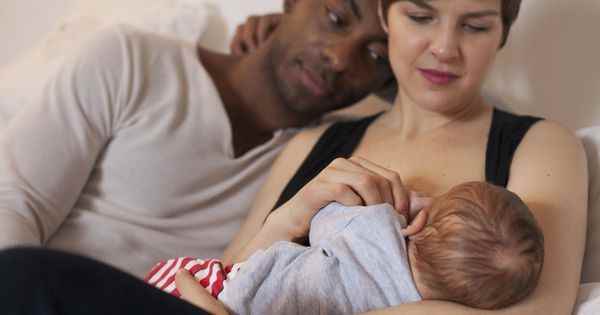Updated on 08/19/2021
2 min read
Breastfeeding when you have contracted Covid-19 or have been vaccinated is safe, even recommended according to studies carried out by Spanish public research.
Breastfeeding, antibodies and the effects of different vaccines: a world first for these two studies
The breast milk of women infected and / or vaccinated against the coronavirus contains antibodies against Covid-19, according to two studies published on the medRxiv medical pre-publication platform and launched by the Spanish scientific consortium called MilkCorona.
The studies were carried out by teams from the Institute of Agrochemistry and Food Technology, the University of Barcelona and the Research Institute of the Sant Joan de Déu Maternal and Child Hospital in Barcelona.
The main objective of these studies is to study the impact of natural infection with SARS-CoV-2 and vaccination on breast milk. It also involves finding out whether the immune response depends on vaccination and whether the levels of antibodies against SARS-CoV-2 are comparable to those of women who have had COVID-19, in addition to assessing the impact. vaccination on these women.
These are the first such studies in Spain and the first in the world to compare the effects of three vaccines on breast milk.
Track your pregnancy week after week
No trace of the virus in the milk and many antibodies
According to the findings, no trace of SARS-CoV-2 was detected in breast milk samples analyzed from mothers infected with Covid-19. In most of the samples analyzed, a great variability was noted in antibodies against the coronavirus, both in naturally infected women and in vaccinated women.
A study to compare the effects of three vaccines on breast milk
In one of the studies, the team analyzed the presence of antibodies against SARS-CoV-2 in 75 breastfeeding women who had received different vaccines: 30 with the Pfizer vaccine, 21 with Moderna and 24 with a first dose of ‘AstraZeneca. The study demonstrated the presence of antibodies in the breast milk samples analyzed. In addition, antibody levels vary depending on the vaccine received. The results showed that the vaccination had the effect of increasing the level of antibodies against SARS-CoV-2, which was even higher after the injection of the second dose.
Vaccination beneficial to breast milk from the first dose
The study also reveals that women naturally infected with Covid-19 have fewer antibodies in their milk than those who have been vaccinated. Some women who had been vaccinated with one dose after contracting Covid-19 had antibody levels equal to those of women who had never had Covid and who had received two doses.
These results underline “the importance of recommending breastfeeding routinely in all cases in which the mother has few or no symptoms“1, said Cecilia Martínez Costa, from the pediatric department of the Hospital Clínico de Valencia. A recommendation supported by María Carmen Collado, researcher and leader of the project: “ Breastfeeding is a priority, and we still need more studies to confirm the potential protective role of these antibodies in breast milk against covid-19 in children.” 2.
WHO recommends continued breastfeeding
On the side of the World Health Organization, it is also recommended to continue exclusive breastfeeding during the first 6 months of the child, then continuous with appropriate complementary foods until his 2 years and beyond. WHO is indeed considering “that the benefits of breastfeeding far outweigh the potential risks of transmission” considering that “in infants, the risk of COVID-19 infection is low“and that in toddlers the signs of infections are mild while the consequences of not breastfeeding and the separation between mother and child can be significant.
.
dts3
